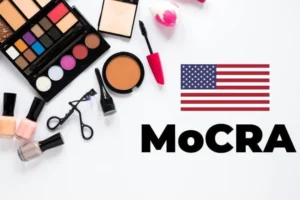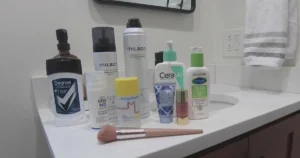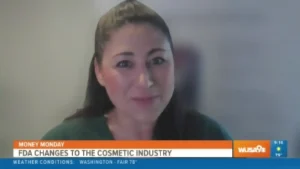Archives: Media Coverage

The Cost of FSVP Non-Compliance
The Foreign Supplier Verification Program (FSVP) is a cornerstone of the FDA’s Food Safety Modernization Act (FSMA), designed to uphold the safety of imported food products. This trade publication delves into the significant implications of FSVP non-compliance, from financial and reputational risks to operational disruptions. It also highlights common pitfalls businesses face when navigating the
Read more »
FSVP’s Impact on Canadian Suppliers
This trade publication covers the Foreign Supplier Verification Program (FSVP) – a key regulation under the FDA’s Food Safety Modernization Act (FSMA). It breaks down what US importers must do to verify their foreign suppliers are meeting FDA food safety standards, including risk based activities such as hazard analysis, supplier evaluations, verification processes and corrective
Read more »
Registrar Corp Acquires Personal Care Regulatory (PCR), Expanding Global Cosmetic Regulatory Compliance Services
[Cambridge, UK and Hampton, VA, December 9, 2024] – Registrar Corp, the world’s largest cosmetics compliance company, is pleased to announce its acquisition of Personal Care Regulatory (PCR) Group, a leading cosmetic regulatory, toxicology, and compliance company based in the United Kingdom (UK) and Ireland. This strategic acquisition extends Registrar’s global regulatory compliance capabilities. The
Read more »
Top US Retailers Selling Non-FDA Compliant Cosmetics
A US Food and Drug Administration (FDA) compliance company is sounding the alarm over high non-compliance rates with new FDA cosmetics regulations. Registrar Corp’s assessment indicates that 48% of cosmetics companies importing to the top 25 US retailers are not FDA compliant and could risk removal from stores. Read the original article here. Registrar Corp,
Read more »
Cosmetic Industry Faces Significant Non-Compliance Under New FDA Regulations
Discover why 48% of companies selling imported cosmetics at America’s top 25 retailers are non-compliant with MoCRA.
Read more »
FDA Implements New Rules to Govern Cosmetics
The federal government has introduced new regulations to improve the safety of cosmetic products, marking the most significant FDA updates on cosmetics in 85 years. These changes focus on three key areas: professional-use products, adverse event reporting labels, and fragrance allergen labeling. First, makeup products intended for professional use now require clear labeling to indicate
Read more »
New FDA Rules Change the Way Cosmetic Brands Do Business
The FDA’s Modernization of Cosmetics Regulation Act introduces new requirements for the cosmetics industry, significantly increasing regulation for the first time since 1938. Key changes include: Facility Registration: Companies must register their manufacturing facilities with the FDA. Product Listings: All marketed cosmetic products, including their ingredients, must be listed and updated with the FDA. Adverse
Read more »
Regulations In Place to Make Cosmetics Safer
New scrutiny from the U.S. Food and Drug Administration (FDA) aims to make cosmetics safer, officials said. On July 1, companies that make products like makeup, shampoo, skincare, artificial eyelashes, tattoo ink, mouthwash, hair dyes, sunless tanning lotions, and waxing kits began adhering to strict FDA regulations, the first of which in over 85 years.
Read more »
AEM Streamlines Adverse Event Reporting Process
Registrar Corp. has introduced an Adverse Event Management (AEM) software in response to the FDA’s Modernization of Cosmetics Regulation Act (MoCRA). This new regulation mandates that cosmetic brands include contact information on both primary and secondary packaging for reporting adverse events. The software provides companies with a brand-specific URL or QR code, enabling consumers to
Read more »
How MoCRA Compliance & AEM Software Transforms Reporting
The article focuses on the impact of the Modernization of Cosmetics Regulation Act (MoCRA) on the cosmetics industry, emphasizing the shift toward improved adverse event reporting and our new AEM Software. The new regulation, which came into effect at the end of 2023, requires cosmetic companies to enhance transparency by listing contact information on packaging
Read more »
Introducing AEM: A MoCRA-Assist Software Package
Introducing AEM, (Adverse Event Management software), a first-of-its-kind platform designed to help cosmetics companies comply with the FDA’s Modernization of Cosmetics Regulation Act (MoCRA). The software securely collects sensitive data, tracks adverse events globally, and formats serious cases for FDA submission in the MedWatch format. MoCRA’s complex reporting requires coordination across various departments, including compliance,
Read more »
Cosmetic Industry Not Prepared For New Adverse Event Rules
Registrar Corp has introduced its Adverse Event Management (AEM) software to aid the cosmetic industry in complying with the FDA’s Modernization of Cosmetics Regulation Act (MoCRA). MoCRA introduces stricter requirements for cosmetic product safety, including displaying contact information on packaging, collecting consumer medical data, and reporting serious adverse events to the FDA within 15 days.
Read more »
Meeting 5 MoCRA Mandates for Adverse Event Reporting
Registrar Corp has launched its Adverse Event Management (AEM) software to assist cosmetics companies in meeting the FDA’s new requirements MoCRA mandates. These mandates include displaying contact information on packaging, collecting detailed consumer medical data, investigating adverse events, reporting serious cases to the FDA within 15 days, and maintaining records for up to six years.
Read more »
Registrar Corp launches Adverse Events Management Software
Registrar Corp, the largest FDA compliance company, has introduced Adverse Event Management software tailored to help cosmetics companies meet new requirements under the FDA’s Modernization of Cosmetics Regulation Act (MoCRA). MoCRA sets stringent rules for reporting adverse events, including displaying contact information on packaging, collecting consumer medical data, and submitting serious event reports to the
Read more »
FDA Implementing New Rules Governing Cosmetics
Under MoCRA, federal government has introduced new safety regulations for cosmetic labels, representing the most significant FDA updates in 85 years. These changes focus on three main aspects: professional-use makeup, complaint reporting labels, and fragrance allergen labeling. First, cosmetics designed for professional use must now have a clear label stating they are not intended for
Read more »
FDA MoCRA Requirements Could Lead to Changes in Makeup
The federal government has rolled out new MoCRA requirements aimed at improving cosmetic safety, marking the most substantial FDA changes to cosmetic legislation in 85 years. These updates focus on three critical areas: labeling for professional-use products reporting adverse events identifying fragrance allergens To begin with, products intended for professional use now require a distinct
Read more »
FDA MoCRA Rules Change the Way Cosmetic Brands Do Business
The FDA has introduced new MoCRA rules that will affect various aspects of cosmetics, including those found in your medicine cabinet, shower routine, and skincare products. These rules represent a significant shift for cosmetic companies, who will now have to comply with more stringent requirements. According to David Lennarz, co-founder and president of Registrar Corp.,
Read more »
MoCRA Changes to the Cosmetic Industry
In this video, Jaclyn Bellomo, Director of Cosmetic Science and Regulatory Affairs at Registrar Corp., discusses the significant changes introduced by the Modernization of Cosmetics Regulation Act (MoCRA). As the most extensive update to cosmetics regulations in over 80 years, MoCRA brings new requirements aimed at enhancing consumer safety and increasing transparency within the cosmetics
Read more »
How MoCRA Will Change Your Favorite Cosmetic Brand
In this video, David Lennarz, President of Business Development and Operations at Registrar Corp., discusses the FDA’s new MoCRA adverse event regulations. The updated rules aim to enhance consumer safety and transparency in the cosmetics industry. Lennarz explains that cosmetics labels must now include information for reporting adverse events, such as skin reactions. Brands are
Read more »- Current Page 1
- Page 2




